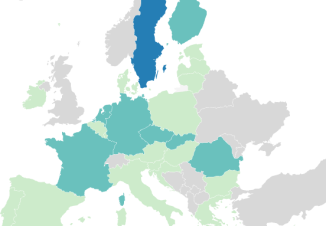
Confirming earlier case law, the ECJ reiterated that employees bringing proceedings relating to their employment should do so before the courts of the Member State in which they habitually carry out their work. National courts seeking to determine an employee’s habitual place of work must make an assessment on the facts.
In this case, several members of Ryanair’s cabin crew, whose ‘home base’ was Charleroi, started legal proceedings against the company in 2011. According to their employment contracts they were subject to Irish law and the Irish courts had jurisdiction over any disputes. The employees disagreed claiming salary arrears and a severance indemnity before the Belgian courts under Belgian law.
Ryanair claimed that the Belgian courts had no jurisdiction. As a result, the European Court of Justice was asked to rule on a preliminary question regarding the ‘place where the employee habitually carries out his work’ which is the principle determining the court that has jurisdiction in cross-border employment situations. The ruling concerned the older Brussels I Regulation on determining jurisdiction, but the current Brussels I bis Regulation includes a similar provision. The same concept is used in the Rome Convention and the Rome I Regulation to determine the applicable law.
In its ruling, the Court repeated its previously stated principles, stressing that the national court must take all the circumstances into account to determine where (or from where) employee habitually carries out their work. These can include the place from which employees carry out transport-related tasks, the place where they return after their tasks, the place where they receive work-related instructions and organise their work and the place where they keep work tools. For the aviation industry, this also includes the place where the relevant aircrafts are stationed and the employees’ ‘home base’. These are significant indicators, but ‘home base’ and habitual place of work are not synonymous (nor is the nationality of an aircraft considered decisive).
In order to determine a habitual place of work for employees who work in several Member States, employers must establish where (or from where) the employees perform the essential part of their duties in the light of all relevant factual circumstances. This will be decisive in determining which court has jurisdiction and the law applicable in any disputes.


